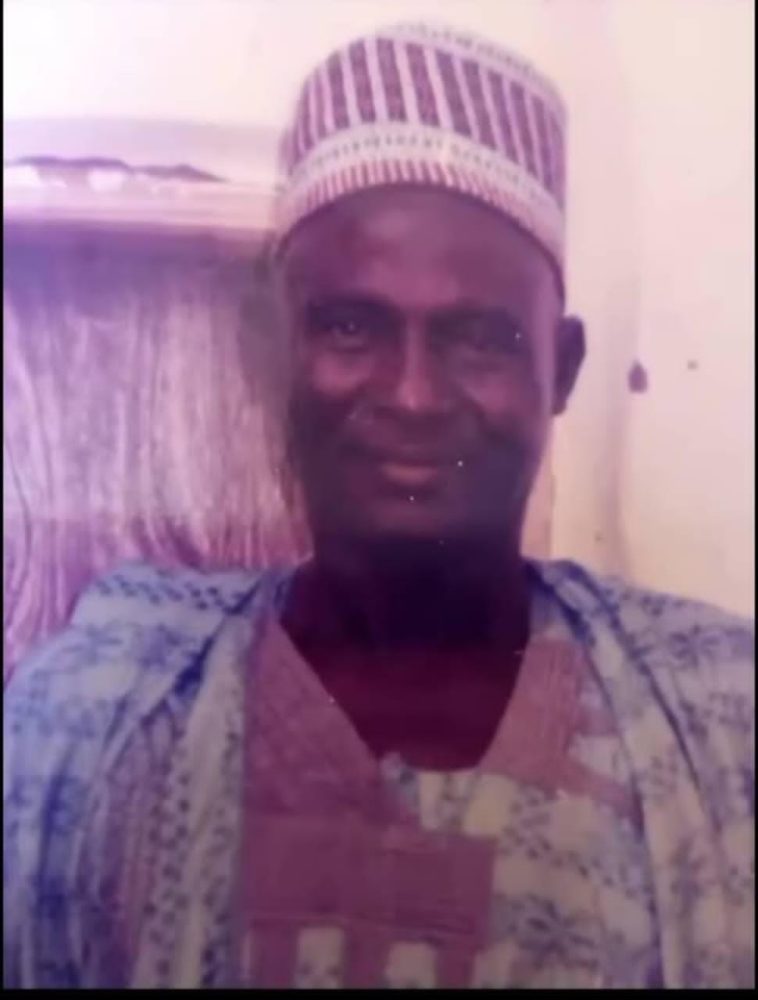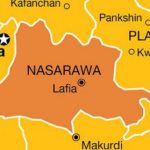Alhaji Mohammed Atose, also known as Alhaji Tela, was a man whose remarkable life exemplified perseverance, ambition, and a deep connection to both his craft and his faith. Born into a time when opportunities for mobility and travel were limited, he embarked on a journey of a lifetime over 70 years ago, undertaking the perilous pilgrimage to Mecca. His story is not just one of religious dedication but also a reflection of the challenges, hardships, and triumphs that shaped the lives of many during his era.
The Pilgrimage: A Journey of Faith and Fortitude
Alhaji Tela’s journey to the Holy Land of Mecca was no ordinary feat. In the era before the conveniences of air travel and modern transport, the pilgrimage, or Hajj, required immense physical and mental fortitude. Hajj on foot, as it was known, was a journey fraught with risks and uncertainties. The route he took, through northeastern Nigeria into Chad, then onward to Sudan, encapsulates a historical pathway once trodden by devout Muslims eager to fulfill one of the pillars of their faith.
From Chad, Alhaji Tela and his companions ventured into Sudan, eventually reaching Port Sudan, where they boarded a ship that carried them across the Red Sea to the shores of Jeddah. But the journey was far from over; from there, they traveled by foot for days before reaching Mecca. This harrowing trek involved crossing mountains, streams, rivers, and deserts. It was an odyssey of not just spiritual significance but of survival. Many pilgrims never made it past these dangerous hurdles. Some succumbed to the elements or disease before reaching Saudi Arabia, while others perished while fulfilling their religious obligations. For those who completed the pilgrimage, some never returned home, either due to death or being unable to make the arduous return trip.
It is a testament to Alhaji Tela’s resilience and faith that he not only reached Mecca but also made it back home. His successful pilgrimage is a legacy that lives on, not just through the title “Alhaji” that followed him for the rest of his life but also through the existence of his family—his descendants, who are living testimonials of his safe return.
The First of His Kind
Alhaji Tela’s pilgrimage is significant not only in the context of his personal spiritual journey but also as a historical milestone for the people of Keana and the larger Alago community. As one of the first, if not the very first, from Keana to perform the Hajj, Alhaji Tela’s journey became a source of inspiration for others. In a time when very few people from his region had the means or opportunity to undertake such a pilgrimage, his experience set a precedent for future generations.
This journey also marked a shift in how people perceived long-distance travel for religious purposes. The title “Alhaji” was not just an honorific but a symbol of spiritual achievement and social elevation, especially in communities where the pilgrimage was rare. Alhaji Tela’s pilgrimage earned him respect and recognition both in life and in death, as it became part of his identity and the way people remembered him.
A Master Tailor and Entrepreneur
While Alhaji Tela’s pilgrimage is a major part of his legacy, his contributions to his community extend far beyond his spiritual achievements. Alhaji Tela was a tailor by trade, but his work went beyond ordinary tailoring services. In fact, his approach to tailoring was unique and groundbreaking in Alago land. Unlike most tailors of his time who sewed clothing on demand for individual clients, Alhaji Tela was an early adopter of what we would now call “ready-made” clothing.
He would purchase materials in bulk, stitch garments, and display them for sale, allowing customers to pick up ready-made clothes upon full payment. This system of producing ready-made clothing not only set him apart from his peers but also established him as an innovative entrepreneur in his community. His skills were so refined that he only sewed for two highly distinguished individuals: the late Osana of Keana, His Royal Highness Otaki Agbo II, and Alhaji Mohammed Sabo, Chiroman Keana. These prominent figures trusted only Alhaji Tela to craft their garments, a testament to his craftsmanship and the high regard in which he was held.
Alhaji Tela’s entrepreneurial spirit was not just about business; it was about providing for his family and ensuring that they had access to opportunities he himself may not have had. The proceeds from his tailoring business funded the education of his children, including the user, who benefited greatly from his father’s hard work and dedication.
Legacy of Family and Education
The user recalls with pride that it was from Alhaji Tela’s tailoring business that they were able to attend school. The value of education was clearly something that Alhaji Tela instilled in his family, as his earnings were directed towards ensuring that his children received formal schooling. This commitment to education did not stop with the user alone. After benefiting from their father’s hard work, the user took it upon themselves to continue the legacy by supporting their siblings through school, paying for their education up to completion.
This sense of responsibility and duty towards family is a core aspect of Alhaji Tela’s legacy. My father’s dedication to his family went beyond material provisions. He instilled in us values that would guide us through life, values that could not be bought but were lived through example. His godliness was reflected in every aspect of his life. He was a man of deep faith, who not only embraced Islam wholeheartedly but also ensured that his children and siblings followed the righteous path. His unwavering belief in Allah shaped his actions, and he believed that serving humanity was a way to serve God. His generosity knew no bounds, often giving to those in need without seeking recognition or reward.
As a tailor, Alhaji Tela was not just a master of his craft, but a teacher who passed on his skills to the younger generation. Tailoring was more than a trade for him; it was a means of fostering independence. He believed that every person should have a skill to rely on, a way to sustain themselves and their families. This is the legacy he left for us — the importance of hard work, the dignity of labor, and the necessity of self-reliance. Through his hands, many were clothed, and through his teachings, many were empowered.
The values my father instilled in us — honesty, sincerity, faith, and self-reliance — were non-negotiable. To reject these values is to reject the very essence of who we are and where we come from. Alhaji Tela, Yene Abate, Yene Geta, Yene Tankara Macarrasha, raised us to be strong and capable individuals. Those who stray from his teachings will have to live with their choices, for life will ultimately hold us accountable for the paths we choose to walk. His legacy, however, will continue to guide those of us who hold his teachings close.
His children, particularly the user, continued to build on the foundation he had laid, ensuring that future generations would have the tools and resources to succeed. The user’s own contributions to their siblings’ education surpass what even a father might do for his children, a fact that reflects the profound influence Alhaji Tela had on their values and sense of duty.
The user expresses deep gratitude to their elder brother, Alhaji Umaru Alhaji Mohammed, for playing a pivotal role in supporting their education. Without the assistance of this elder brother, the user acknowledges that they would not have become the person they are today. This acknowledgment of family support further reinforces the idea that Alhaji Tela’s legacy is not just about his individual achievements but about the collective success of his family, made possible through cooperation, sacrifice, and love.
The Man Behind the Name
The name “Alhaji Tela” is steeped in meaning, reflecting both his religious devotion and his professional life. “Alhaji,” as mentioned earlier, signifies his status as a pilgrim to Mecca, a title that carries weight in many Muslim communities. However, the name “Tela,” which means “Tailor,” reflects the career path that defined much of his life. It is rare to find someone who embodies their profession so completely that it becomes part of their identity, but Alhaji Tela did just that. His skills as a tailor were not just a means of livelihood; they were a source of pride, accomplishment, and recognition.
The fact that Alhaji Tela stitched garments only for the most respected figures in his community speaks volumes about his reputation and the trust people placed in him. Tailoring, in this sense, was more than a job—it was a craft, an art form that required precision, creativity, and an understanding of the client’s needs and status.
A Lasting Impact
Alhaji Tela’s life, from his extraordinary journey to Mecca to his pioneering approach to tailoring, left an indelible mark on his family and community. His resilience in the face of danger during his pilgrimage, his innovation in his craft, and his commitment to providing for his family are all aspects of his legacy that continue to influence those who knew him and those who came after him.
His story is a reminder of the power of faith, hard work, and perseverance. Alhaji Tela’s life was not one of luxury or ease, but it was one of purpose and dedication. His pilgrimage, though fraught with peril, was a testament to his unwavering faith, and his success as a tailor showed his ability to innovate and excel even in challenging circumstances.
For the user, the legacy of Alhaji Tela is deeply personal. It is the story of a father who worked tirelessly to ensure a better future for his children, and it is the story of a man whose life continues to inspire those who came after him. Through the user’s own achievements and contributions to their family, Alhaji Tela’s legacy lives on, a lasting tribute to a man who dared to dream, work, and succeed against the odds.
M.A ATOSE (Amb.) Madauchin Keana.






